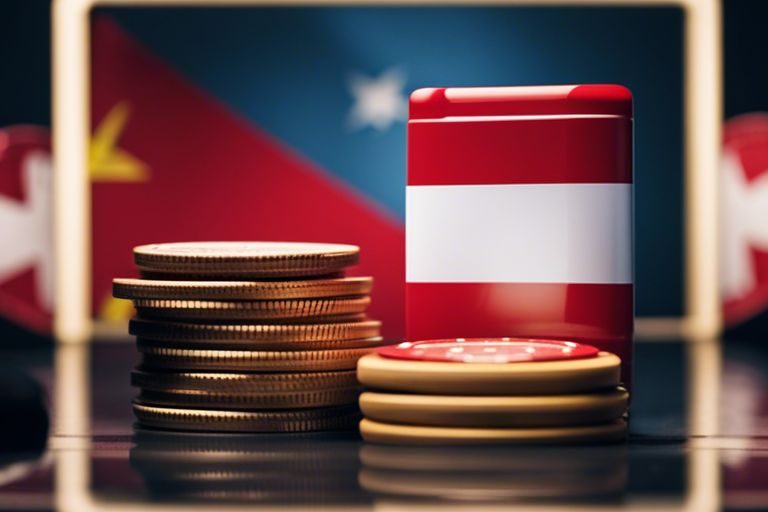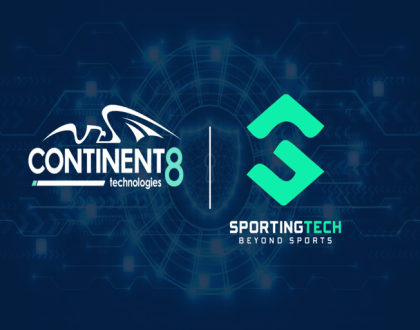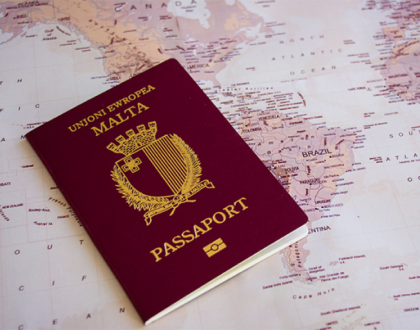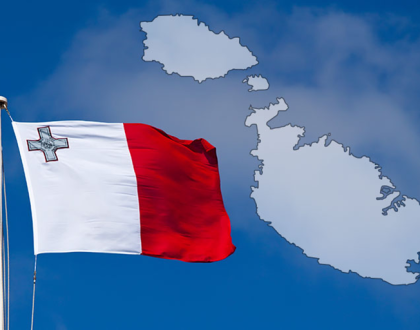Malta Gaming Laws – What You Need to Know

Over the years, Malta has become a hub for the online gaming industry, with many companies establishing their operations on the island. However, navigating the Malta gaming laws can be complex and overwhelming for those looking to enter this lucrative market. Understanding the intricacies of these laws is crucial to ensuring compliance and avoiding potential legal pitfalls.
The Malta Gaming Authority (MGA)
Role and Responsibilities
The Malta Gaming Authority (MGA) is the regulatory body responsible for governing all forms of gaming in Malta, including land-based and online operations. Its main role is to ensure that the gaming industry in Malta is fair, transparent, and free from criminal activity. The MGA focuses on providing a regulatory framework that promotes player protection, responsible gaming, and the prevention of money laundering.
The Authority issues licenses to gaming operators, monitors their activities, and enforces compliance with regulations and legislative standards. It is also responsible for investigating and taking action against any illegal or harmful activities within the gaming industry. The MGA works diligently to maintain Malta's reputation as a leading jurisdiction for online gaming.
Regulatory Framework and Objectives
An crucial aspect of the MGA's regulatory framework is its focus on ensuring that gaming in Malta is conducted fairly and transparently. The main objectives of the MGA include safeguarding players' interests, preventing crime and corruption, and promoting responsible gaming practices. The regulatory framework is designed to provide a level playing field for all operators while upholding the highest standards of integrity and security.
Any operator looking to obtain a license from the MGA must meet strict criteria and adhere to stringent regulations. This ensures that only reputable and trustworthy operators are allowed to conduct gaming activities in Malta. The regulatory framework also includes measures to combat problem gambling and protect vulnerable individuals from the potential harms of excessive gaming.
Responsibilities
The MGA is entrusted with the critical responsibility of regulating the gaming industry in Malta and ensuring that all operators comply with the law. By upholding the highest standards of integrity and transparency, the Authority plays a crucial role in safeguarding the interests of players and maintaining the reputation of Malta as a hub for gaming excellence.
Licensing Requirements
Now, let's investigate into the imperative details of the licensing requirements for operating a gaming business in Malta. Understanding the types of gaming licenses available is crucial for potential licensees looking to navigate the regulatory landscape effectively.
Types of Gaming Licenses
- 1. B2C Licenses: Issued to operators offering gaming services to consumers.
- 2. B2B Licenses: Required for suppliers providing gaming solutions to other licensees.
- 3. Critical Gaming Supply Licenses: Essential for companies providing key gaming services.
- 4. Gaming Device and System Licenses: Necessary for entities offering gaming equipment and software.
- 5. Controlled Skill Game Licenses: Pertinent for operators offering skill-based games such as poker.
Thoroughly understanding the distinctions between these licenses is crucial for ensuring compliance with Maltese gaming laws. Understanding the nuances and specific requirements of each license type is key to establishing a successful gaming operation in Malta. Thorough research and consultation with legal experts knowledgeable in Maltese gaming regulations can help navigate this intricate process effectively.
Application and Approval Process
One of the critical steps in obtaining a gaming license in Malta is the application and approval process. Potential licensees must navigate a thorough vetting process to ensure compliance with regulatory standards and requirements.
One key aspect of the application process is submitting a comprehensive business plan outlining the operational structure and financial projections of the gaming venture. The Malta Gaming Authority (MGA) reviews these documents meticulously to determine the suitability of the applicant for holding a gaming license in Malta.
Operational and Financial Criteria for Licensees
One of the most critical aspects of maintaining a gaming license in Malta is adherence to strict operational and financial criteria set forth by the MGA. Licensees must demonstrate their ability to operate in a financially sustainable manner while ensuring the highest standards of player protection and responsible gaming practices.
The MGA imposes stringent requirements on licensees to safeguard player funds, prevent money laundering, and adhere to strict reporting standards. Failure to comply with these criteria can result in regulatory action, including fines or revocation of the gaming license. Compliance with these operational and financial criteria is non-negotiable for maintaining a successful gaming operation in Malta.
Compliance and Monitoring
Ongoing Compliance Measures
Many online gaming operators in Malta are required to adhere to strict ongoing compliance measures to ensure they are meeting the regulatory standards set forth by the Malta Gaming Authority (MGA). Any lapses in compliance can result in serious consequences, including fines or even the revocation of their gaming license.
Reporting and Transparency Requirements
Many online gaming operators must also comply with reporting and transparency requirements as mandated by the MGA. To maintain their license, operators need to submit regular reports detailing their financial activities, security measures, and any major operational changes. Any failure to comply with these requirements can lead to penalties and regulatory action.
Ongoing communication and transparency with the MGA are important for online gaming operators to maintain a good standing and operate within the boundaries of the law. Any deviations from the reporting requirements can trigger investigations and potential enforcement actions.
Audit and Inspection Procedures
Ongoing audit and inspection procedures are integral to the regulatory framework established by the MGA. Monitoring activities are conducted regularly to ensure that operators are compliant with all regulatory requirements and to detect any potential issues that may arise.
Requirements for audits and inspections may vary depending on the type and size of the gaming operation, but all operators must be prepared to undergo scrutiny to maintain a secure and fair gaming environment for players.
Player Protection Measures
Responsible Gaming Policies
After enjoying the excitement of online gaming, it is important that players are aware of the responsible gaming policies in place to protect them. Player protection is a top priority for the Malta Gaming Authority, and they ensure that licensed operators implement measures to promote responsible gaming. This includes providing tools for players to set limits on their deposits, wagers, and session durations to prevent excessive gambling.
Player Support and Dispute Resolution
After playing games on online platforms, players need the assurance that they are supported in case of any disputes or issues that may arise. Measures have been put in place by the Malta Gaming Authority to ensure that players have access to efficient and fair dispute resolution mechanisms. Players can seek assistance from the regulator if they encounter any problems with licensed operators, such as disputes over winnings or account closures.
Plus, to further support players, the Malta Gaming Authority requires operators to provide clear information on how to contact their customer support teams for assistance. This ensures that players can easily reach out for help whenever needed and receive timely responses to their queries.
Protection of Minors and Vulnerable Individuals
After indulging in online gaming activities, it is crucial to emphasize the Protection of minors and vulnerable individuals from the potential harms of gambling. The Malta Gaming Authority mandates strict age verification checks to prevent underage individuals from accessing gaming sites. Additionally, operators are required to implement measures to identify and assist players who may be exhibiting signs of problem gambling or vulnerability.
Resolution
Highlighting the importance of Protection of minors and vulnerable individuals ensures that the gaming environment remains safe and enjoyable for all participants. By addressing the risks associated with underage gambling and vulnerability, the Malta Gaming Authority demonstrates its commitment to safeguarding the well-being of players and maintaining the integrity of the gaming industry.
Anti-Money Laundering (AML) and Counter-Terrorist Financing (CTF) Regulations
Once again, the Malta Gaming Authority (MGA) upholds stringent regulations to combat money laundering and terrorist financing activities within the gaming industry. These regulations are in line with international standards and aim to protect the integrity of the industry while safeguarding against criminal activity.
AML/CTF Obligations for Operators
Regulations require all operators in Malta to implement robust AML and CTF measures to prevent their platforms from being used as vehicles for illicit activities. This includes conducting thorough customer due diligence checks, monitoring transactions for suspicious behavior, and reporting any questionable activity to the relevant authorities. Failure to comply with these obligations can result in severe penalties, including fines and the revocation of licenses.
Monitoring and Reporting Suspicious Activity
CounterTerrorist financing regulations necessitate that operators maintain vigilant monitoring systems to detect any signs of suspicious activity on their platforms. This includes keeping a close eye on transactions, account behavior, and any other irregularities that may indicate potential money laundering or terrorist financing activities. Operators are required to report such suspicions to the Financial Intelligence Analysis Unit (FIAU) promptly to prevent further illicit actions.
AMLCTF regulations underscore the importance of collaboration between operators, regulatory bodies, and law enforcement agencies to combat financial crime effectively. By adhering to these regulations and promptly reporting any suspicious activity, operators play a crucial role in maintaining the integrity and security of the gaming industry in Malta.
Taxation and Financial Regulations
Gaming Tax Structure in Malta
The gaming tax structure in Malta is favorable for operators, making it an attractive destination for online gaming companies. Unlike many other jurisdictions, Malta operates a tiered tax system based on the type of gaming service being offered. This system allows operators to benefit from reduced tax rates based on their specific operation, ranging from 5% to 35%. In addition, Malta does not impose Value Added Tax (VAT) on international B2B transactions.
Financial Incentives and Support for Gaming Businesses
With a well-established gaming industry, Malta offers various financial incentives and support mechanisms for gaming businesses looking to set up operations on the island. These incentives include tax credits, investment schemes, and grants for companies investing in research and development. Additionally, the Malta Gaming Authority (MGA) provides regulatory assistance and guidance to help businesses navigate the complex gaming landscape.
Malta's strategic location within the European Union, coupled with its robust legal framework and supportive government policies, make it an ideal hub for gaming companies seeking growth and expansion. Malta has earned a reputation as a premier gaming jurisdiction due to its strong regulatory framework, progressive tax system, and proactive approach to supporting the industry.
Record-Keeping and Reporting for Tax Purposes
Taxation regulations in Malta require gaming operators to maintain detailed records of their financial transactions and activities for tax purposes. This includes keeping thorough accounting records, submitting regular financial reports to the relevant authorities, and adhering to stringent reporting requirements. Failure to comply with these regulations can result in penalties, fines, or even the revocation of a gaming license.
Support services are available in Malta to assist gaming businesses with their record-keeping and reporting obligations. Professional firms specializing in tax and financial compliance can help operators navigate the complex requirements and ensure that they remain in good standing with the authorities. By engaging with these support services, gaming companies can mitigate the risks associated with non-compliance and focus on their core business operations.
Trends and Future Developments in Malta's Gaming Laws
Emerging Technologies and their Regulatory Implications
Your regulatory compliance obligations are constantly evolving as new technologies such as blockchain, artificial intelligence, and virtual reality are integrated into the gaming industry. These advancements bring exciting opportunities for innovation but also pose new challenges for regulators. The Malta Gaming Authority (MGA) is at the forefront of adapting regulations to accommodate these technologies while ensuring player protection and maintaining the integrity of the industry.
Prospective Changes to Legislation
To enhance Malta's position as a leading hub for gaming operators, there are prospective changes to legislation aimed at streamlining processes, enhancing consumer protection measures, and fostering industry growth. These changes may include updates to licensing requirements, stricter enforcement mechanisms, and increased collaboration with international stakeholders to address emerging issues in the gaming sector.
Trends in Malta's gaming laws also reflect a shift towards greater international collaboration and adherence to industry standards. The MGA actively engages with regulatory bodies from other jurisdictions, industry associations, and international organizations to exchange best practices, harmonize regulations, and combat cross-border challenges such as money laundering and problem gambling.
International Collaboration and Standards
Future developments in international collaboration and standards are crucial for Malta to maintain its reputation as a reputable jurisdiction for gaming operators. By aligning regulations with global standards set by organizations like the International Association of Gaming Regulators (IAGR) and the Gaming Standards Association (GSA), Malta can continue to attract investment, promote responsible gaming practices, and ensure a fair and transparent gaming environment.
Conclusion
With these considerations in mind, it is crucial for all entities involved in the gaming industry in Malta to have a clear understanding of the country's gaming laws. From licensing requirements to responsible gaming regulations, compliance with the legal framework is vital for maintaining a successful and reputable gaming operation in Malta. By staying informed and adhering to the laws and guidelines set forth by the Malta Gaming Authority, businesses can ensure a smooth and compliant operation while providing a safe and enjoyable experience for players.
Overall, the Malta Gaming Laws are designed to promote a fair, transparent, and responsible gaming environment in the country. With the gaming industry constantly evolving and growing, it is important for stakeholders to stay up to date with any changes or updates to the legal framework. By doing so, businesses can thrive in the competitive gaming market while upholding the highest standards of integrity and compliance.
FAQs
What is the Malta Gaming Authority (MGA)?
The MGA is Malta's regulatory body overseeing all gaming activities, ensuring fairness, transparency, and legality.
What are the different types of gaming licenses in Malta?
Malta offers various licenses including B2C, B2B, Critical Gaming Supply, Gaming Device and System, and Controlled Skill Game licenses.
What are the key responsibilities of the MGA?
The MGA issues licenses, monitors operators for compliance, investigates illegal activities, and promotes responsible gaming practices.
How does Malta ensure player protection in online gaming?
Measures include strict licensing criteria, responsible gaming policies, and tools for players to manage their gaming habits.
What are the tax implications for gaming businesses in Malta?
Malta offers a tiered tax system favorable to operators, coupled with incentives and support for business growth.
Michael
With over 20 years experience in web design, SEO and website promotion I always give you an expert advice in regard to any issues related to your Site Design, SEO, Internet Marketing, Promotion, Backlinks, Site Content. In order to help you find out what is missing or can be improved and get higher rankings in Google and more traffic.
Recommended Posts

Sportingtech Boosts Security with Continent 8
October 4, 2024

Legal Win for Malta’s Citizenship Program
October 4, 2024

Why iGaming Brands Choose Malta
October 4, 2024




